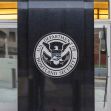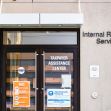The U.S. Citizenship and Immigration Services (USCIS) introduced three initiatives late last month to tackle the rising processing backlogs for work permits. The new rule includes a new internal cycle time goal, an expansion of premium processing services, and an improvement in access to Employment Authorization Documents.
The expansion of premium processing services, one of the three pillars in this final rule, is the result of the Emergency Stopgap USCIS Stabilization Act. The act was passed in August of 2020 to expand the Department of Homeland Security’s authority to provide premium processing services for certain immigration-related applications. Prior to the passing of this act, DHS could only provide premium processing for employment-based applications. This bill also increased the premium fees that DHS could charge “to reflect inflation without following certain rulemaking requirements.”
By the end of the fiscal year 2023, USCIS aims to reduce processing times for those who paid the premium processing fee on the I-129, Petition for a Nonimmigrant Worker, and the I-140, Immigrant Petition for Alien Worker, down to two weeks. Both forms are petitions for non-U.S. citizens and non-immigrants to legally work in the United States. However, those who do not pay this expanded “premium processing fee” will have quite a lengthy wait. For the I-I29 petition, the aim is two months, while the I-140 petition is six months until fully processed.
USCIS defines “premium processing” as an “expedited adjudication service.” This service was not previously offered for petitions filing the I-129 or I-140 form. The rule also expands the premium processing service to other forms, including Form I-539, Application to Extend/Change Nonimmigrant Status, and Form I-765, Application for Employment Authorization.
The I-129 form is filed by an employer and is a petition to USCIS for an alien beneficiary to come to the United States and work temporarily. There is a wide range of classifications that can benefit from this form, such as a temporary agricultural worker (H-2A or H-2B), an alien of extraordinary ability (O-1, or O-2), and even religious workers (R-1), to name a few.
The I-140 is also filled out by a U.S. employer but is for workers who plan to immigrate to the United States, and is a path to citizenship. There are three categories: EB-1, permanent workers with extraordinary ability, EB-2, immigrants with advanced degrees, or EB-3, Immigrants that can be classified as skilled workers.
The rule now allows for expedite fees, or “premium processing” up to $2,500 to speed up the process of receiving employment-related immigration benefits, such as work permits. The Form I-129 filing fee is currently $460, while the Form I-140 is $700.
The third prong of this rule improves the access to Employment Authorization Documents, which are a benefit for individuals in the U.S. while they seek asylum or another legal status. Currently, the USCIS is operating under a temporary final rule that allows the agency to streamline many Employment Authorization Document renewals for healthcare and childcare workers.
USCIS Director, Ur M. Jaddou, said in a statement, “Every application we adjudicate represents the hopes and dreams of immigrants and their families, as well as their critical immediate needs such as financial stability and humanitarian protection.” They also claim that this new rule will not negatively impact any application that does not pay the premium fee.
As of February 2022, the USCIS is in a 9.5 million case backlog, exacerbated by the COVID-19 pandemic. On average, two million non-U.S. citizen individuals apply to receive or renew work permits each year. These documents provide access to the livelihood for millions of families nationwide.
Non-immigrant employment visas have often been under scrutiny for fraud and abuse, especially the H-1B and H-2B visa categories. The filing and expedite fees charged by USCIS are designed to be paid by the employer. One way these visa categories have been abused is by charging those fees to the employees once they arrive in the United States. Raising this fee could have the potential of putting a higher burden, albeit an illegal burden, on those seeking temporary work authorization in the United States. Additionally, it could create an even higher barrier for smaller businesses to bring in much-needed workers.
Just last year, two Florida business executives were busted in October 2021 for running a scheme to hire foreign nationals to fill housekeeping and food service positions. The defendants charged the individuals $650 for an application to be filed on their behalf, which is over the actual filing fee as well as a fee that is supposed to be taken by the employer.






